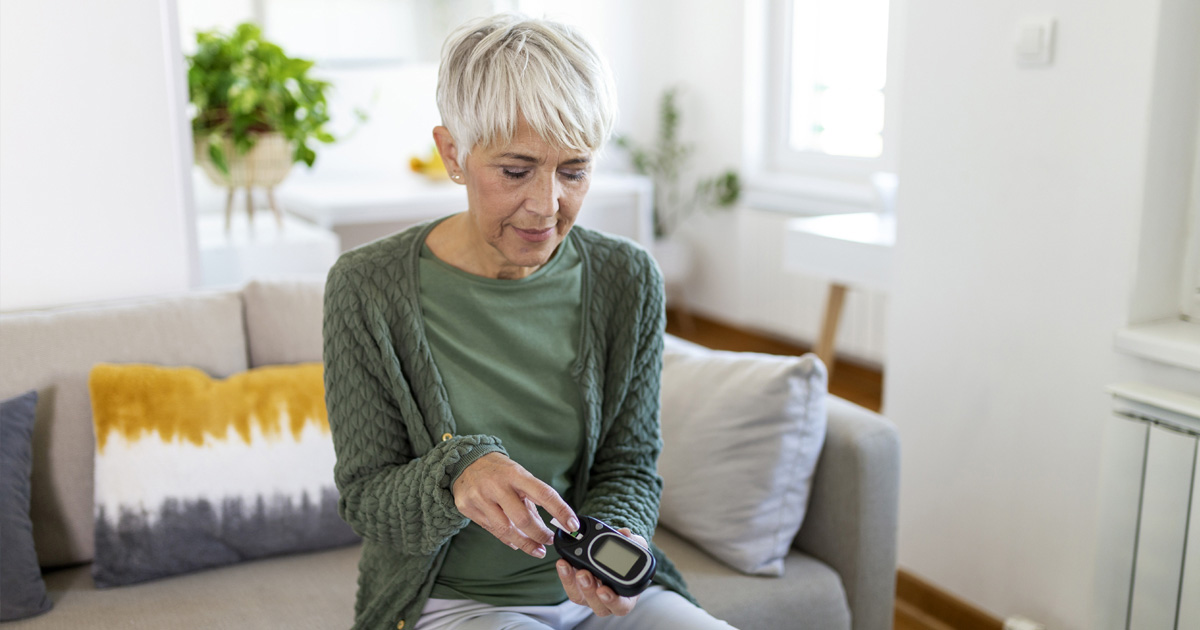Stay on your Toes: A Guide to Diabetes and Foot Health

Pain can certainly be uncomfortable, but it plays a very important role — it acts as your body’s internal alarm system warning you when something is wrong.
For people with diabetes and diabetic neuropathy, reduced sensation in the feet can make it harder to notice injuries, increasing the risk of serious wounds.
Diabetes specialists at AHN Grove City Hospital can help you prevent and treat foot wounds so you can stay healthy and live well with diabetes.
What is diabetes?
Diabetes is a chronic condition that affects how the body processes blood sugar (glucose).
Your body produces insulin, a hormone made by your pancreas that helps move glucose into your cells for energy.
If your body does not produce enough insulin (type 1 diabetes) or cannot use insulin effectively (type 2 diabetes), glucose stays in your blood instead of reaching your cells.
Diabetic neuropathy and foot health
Over time, high blood sugar levels can damage nerve cells, leading to a serious condition called diabetic neuropathy that affects sensation — particularly in the feet and legs — and can cause numbness, tingling, or burning.
In some cases, diabetic neuropathy can cause total loss of feeling, meaning you might not notice an ulcer or wound at the bottom of your foot until you see it.
Without proper diabetic foot care, you can develop infections and other serious health issues that require invasive treatments, including amputation.
Diabetic neuropathy risk factors
Not everyone with diabetes develops neuropathy, but there are factors that increase your risk:
- Poorly controlled blood glucose levels
- Long duration of diabetes
- High blood pressure
- High cholesterol
- Smoking
- Excessive alcohol consumption
- Obesity and sedentary (inactive) lifestyle
Warning signs of neuropathic wounds
Because diabetic neuropathy reduces sensation, wounds can develop without you noticing. Neuropathy symptoms to look out for include:
- Redness, swelling, or warmth in the affected area.
- Formation of calluses (hardened areas of skin).
- Open sores or ulcers that don’t heal.
- Drainage or pus from a wound.
- Blackened or dead tissue (a sign of severe infection).
Diabetic wound care and treatment options
Proper care of wounds is essential for preventing diabetes complications. Some wound care steps and treatment options include:
- Daily foot inspections to check for wounds or changes in skin color.
- Proper wound cleaning and dressing to prevent infection.
- Reducing pressure from the affected area by using special footwear or orthotics.
- Medical treatments like antibiotics, debridement (removal of dead tissue), or advanced wound care therapies like skin grafts or hyperbaric oxygen therapy.
- In severe cases, surgery to remove infected tissue or — in the most extreme cases — perform amputation.
Even with proper care, wounds can still happen. If you find a wound on your foot, clean it with mild soap, cover it with a dry bandage, and contact your AHN diabetes specialist immediately.
Your doctor may suggest special diabetic footwear or crutches while the wound heals. Continue to follow up with your doctor to make sure it’s healing properly and to prevent infection.
Preventive foot care
Many diabetic foot problems can be prevented through simple steps, like:
- Gentle washing – Wash your feet every day with mild soap and lukewarm water.
- Moisturizing – Use lotion after washing but avoid using it in between your toes.
- Trimming your toenails – Cut your toenails and file any sharp edges.
- Wearing comfortable shoes – Your shoes should fit you well with no rubbing seams.
- Protection from extreme temperatures – Wear diabetic socks and shoes on hot surfaces and avoid exposing your feet to cold temperatures.
- Avoiding walking barefoot – Always wear shoes and socks, even indoors, to protect your feet from injury and infection.
- Managing your blood glucose (sugar) – Work with your doctor to keep your blood glucose levels within a healthy range.
Take charge of your diabetic foot health
Don’t let diabetes slow you down. AHN provides advanced neuropathy treatment and personalized support to help you manage your diabetic foot pain. Schedule an appointment with diabetes specialists at AHN Grove City Hospital today.
About Christopher Sprando, MD
Dr. Christopher Sprando, MD, is a family medicine physician in Grove City, PA, and has over 20 years of experience in the medical field. He graduated from University of Pittsburgh School of Medicine in 2003. He has expertise in areas of primary care, general wellness exams, and preventive health.
About Grove City Hospital
AHN Grove City was founded in 1978, after two older hospitals merged in order to keep health care viable within the community. We value personal connections with our patients while still pioneering new medical services. AHN Grove City is noted for earning high marks in patient satisfaction.

